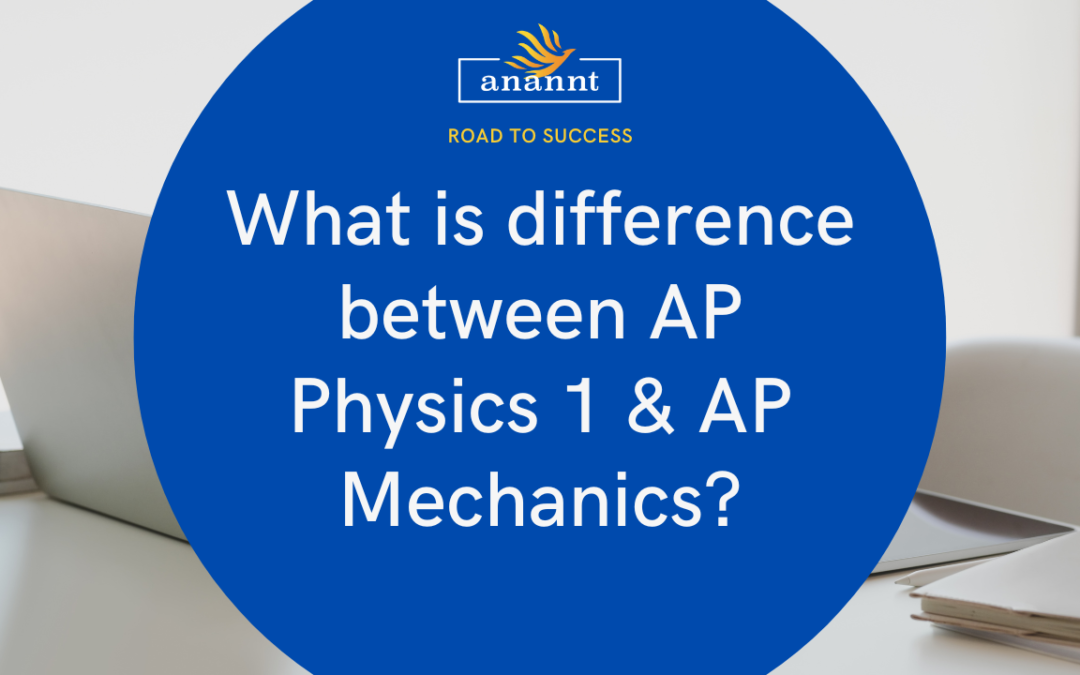
Master AP Physics 1 FRQs: Anannt’s Ultimate Guide to Acing the Exam
Simplify Your Way to Top Scores in AP Physics 1 Free Response Questions
The AP Physics 1 exam can seem tough, with its detailed questions. But, the Free Response Questions (FRQs) section is a great chance to shine. At Anannt Education Dubai, we’ve made this guide to make FRQs easier for you, focusing on straightforward communication and key physics concepts.Getting to Know FRQs
-
- First, Read Questions Well: Start by reading each question closely. If a question has many parts, go through them one by one. This way, you really understand what’s asked.
-
- Then, Find the Key Principles: Next, look for the main physics ideas in the question. Getting these ideas right is very important for your answers.
Talking Clearly: How to Do It
-
- Keep Words Simple: Always use easy, clear words. This makes your points easy to get.
-
- Show How You Calculate: Also, when working out problems, explain your steps well. Talk about the formulas, how you use numbers, and why units matter. This shows how well you think things through.
Diagrams: Your Helpful Friends
-
- Add Good Diagrams: Plus, good diagrams can really help your answers. Make sure they’re simple and clear with good labels.
-
- Labels Should Help: Every label must make your point clearer, making your answer better.
Knowing Your Physics: It Counts
-
- Explain the Ideas: Also, it’s key to talk about the physics ideas behind your answers. Mention how forces work, what happens with energy, and link these to your question.
-
- Right Terms Matter: Using the correct physics terms shows you really understand your stuff.
Getting Better: Practice and Advice
-
- Practice Makes Perfect: Doing past exam questions often helps a lot. It gets you used to what the exam asks.
-
- Feedback Is Gold: For tailored advice and strategic insights beyond what you can find on your own, consider enrolling in a demo class with Anannt Education. Our expert instructors can pinpoint exactly where you need improvement and provide you with personalized tips and strategies. Visit our website at Anannt Education to learn more and take the first step towards mastering your AP Physics 1 preparation.
Up-to-Date: Stay Informed
-
- Lastly, Stay Updated: Keeping up with the latest from the College Board makes sure you’re studying right. Want to check latest updates, click here.
Wrapping Up: Beyond Just Scores
As you journey through the landscape of AP Physics 1, remember that your adventure goes far beyond mere numbers on a scorecard. Each equation you master and every concept you grasp is a step towards a deeper understanding of the world around you. Physics is not just a subject; it’s a way to unlock the mysteries of the universe, one formula at a time. At Anannt Education dubai, we don’t just prepare you for an exam; we inspire you to see the beauty in the laws of motion and the elegance of energy transformation. So, as you gear up to conquer the FRQs, know that you’re not just aiming for top scores—you’re sculpting your mind to think like a physicist. Embrace this challenge with curiosity and passion, and let’s turn this academic endeavor into a thrilling quest for knowledge.For a more in-depth exploration of our offerings, please visit our website and feel free to connect with us directly via WhatsApp for any queries or further information.


Recent Comments